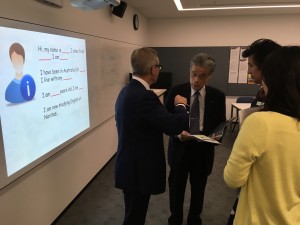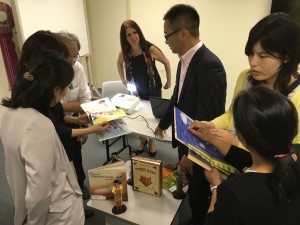Multiculturalism is a pressing topic for many local governments in Japan as the number of foreign residents continues to increase in both urban and regional areas across Japan. In light of this, Australia is a role model that Japan looks upon in understanding the establishment and implementation of successful cross-sectoral multicultural policies that involve governments, non-profit organisations and local communities.
Japan is becoming increasingly culturally diverse as the foreign population continues to grow. It is expected that the amendment of the country’s immigration control law in recent years will further boost this trend. The foreign population living in Japan exceeded 2.8 million as of 2020. Amongst the migrants known as “newcomers”—those who settled in Japan during or after the 1990s—there are some who have difficulties with the Japanese language, and the language barriers have proved challenging for the newcomers to settle down in Japan.
Local governments are at the forefront of public policymaking to correspond to this demographic shift and it is becoming increasingly important for them to provide adequate social services for their foreign residents. Moreover, public servants and employees of international exchange associations throughout local and regional areas of Japan are working to encourage internationalisation in their local areas.
In Japan, the concept of people of different nationalities and ethnicities coming together to build relationships based on equality and respect in the same community is defined as ‘multicultural coexistence’. Local governments across Japan are working to push forward policies to promote this concept.
The CLAIR Tokyo Headquarters serves as a vital information hub on multiculturalism for local governments across Japan and provides a wide range of resource to assist them with policymaking. To ensure we provide resource materials that are beneficial to Japanese local governments, CLAIR Sydney continues to research innovative multicultural policies in Australia. See more information below on our role in promoting multiculturalism and how we assist local governments in Japan.
Multicultural Study Tour
Since 2006, CLAIR Sydney has been organising an annual Multicultural Study Tour for Japanese public employees engaged in international exchange. The purpose of these tours is to create opportunities for Japanese public employees to learn about multiculturalism in Australia through on-the-ground observations of the variety of services and support available for the culturally and linguistically diverse (CALD) population of Australia. These understanding and learnings subsequently facilitate the research and development of multicultural policies in local and regional areas of Japan.
The location of the Multicultural Study Tour alternates yearly between Melbourne and Sydney.
The last Study Tour was held in Melbourne in November 2019. The 11 attendees from prefectural/municipal governments and government-affiliated agencies across Japan visited the following organisations in Greater Melbourne:
- Immigration Museum
- Multicultural Affairs and Social Cohesion Division, Victorian Government/Victorian Multicultural Commission
- City of Melton
- AMES Australia
- Caulfield Primary School
- LanguageLoop (Formerly VITS: Victorian Interpreting and Translating Service)
- Royal Melbourne Hospital
- Ethnic Communities’ Council of Victoria (ECCV)
- Collingwood English Language School (CELS)
- Metropolitan Fire Brigade (The current Fire Rescue Victoria)
The Multicultural Study Tours have provided the attendees from Japan with invaluable opportunities to have a first-hand understanding of the multicultural services, support and programs being implemented in New South Wales and Victoria. Attributable to the generosity of all the organisations, agencies and institutes that we have visited over the years, we have compiled numerous research reports on multiculturalism in Australia which are being used by local governments in Japan in their research and development of multicultural policies.
We would like to express our gratitude to all of the organisations and individuals that have hosted our delegations and provided us with invaluable information and experiences over the years.


